44 a diagram of a volcano with labels
Phase Diagrams (and Pseudosections) - Teaching Phase Equilibria Standard phase diagrams may include many reactions but, depending on its composition, a particular rock may only experience a few (or none) of them. Pseudosections only include those reactions that affect a particular composition. Fields on a pseudosection are labeled (specifying the equilibrium mineral assemblage) with the reaction lines ... Pompeii | History, Volcano, Map, Population, Ruins, & Facts The city of Pompeii is famous because it was destroyed in 79 CE when a nearby volcano, Mount Vesuvius, erupted, covering it in at least 19 feet (6 metres) of ash and other volcanic debris.The city's quick burial preserved it for centuries before its ruins were discovered in the late 16th century. The subsequent excavation of Pompeii and the surrounding areas in the mid-18th century marked ...
Mapping Earth - Unit Collection This lab contains a very useful list of items found on geologic maps as well as two pages of labelled block diagrams. For the activities, Exercise Part 1: Visualizing Geology in 3-D with online program asks students to explore 3-D models and has an embedded link to a 3-D block diagram viewer.

A diagram of a volcano with labels
Facts about Volcanoes for Kids - Primary Homework Help A volcano is a landform (usually a mountain) where molten rock erupts through the surface of the planet. In simple terms a volcano is a mountain that opens downward to a pool of molten rock ( magma) below the surface of the earth. It is a hole in the Earth from which molten rock and gas erupt. Types of Mountains - Primary Homework Help Volcanic Mountains . As the name suggests, volcanic mountains are formed by volcanoes. Volcanic Mountains are formed when molten rock (magma) deep within the earth, erupts, and piles upon the surface. Magna is called lava when it breaks through the earth's crust. When the ash and lava cools, it builds a cone of rock. 30 Informative Facts, Diagram & Parts Of Human Body For Kids - MomJunction 30 Human Body Facts For Kids. Here are a few interesting facts about the human body (2) (8) (9) (10). The human blood is composed of red blood cells, white blood cells, platelets, and plasma. Up to 60% of the human body is water. A human heart beats around 100,000 times in a day.
A diagram of a volcano with labels. Jupiter - Wikipedia Jupiter is the fifth planet from the Sun and the largest in the Solar System.It is a gas giant with a mass more than two and a half times that of all the other planets in the Solar System combined, but slightly less than one-thousandth the mass of the Sun. Jupiter is the third brightest natural object in the Earth's night sky after the Moon and Venus, and it has been observed since prehistoric ... 19 Types of Graphic Organizers for Effective Teaching and Learning Step 3: Write down the similarities in the bubbles that are common to both topics. Double Bubble Map Template (Click on the template to edit it online) 20. Venn diagram. Another graphic organizer that helps you visually represent a comparison of differences and similarities between two subjects, is the Venn diagram. Vanadium - Wikipedia Vanadium is a chemical element with the symbol V and atomic number 23. It is a hard, silvery-grey, malleable transition metal.The elemental metal is rarely found in nature, but once isolated artificially, the formation of an oxide layer (passivation) somewhat stabilizes the free metal against further oxidation.. Spanish scientist Andrés Manuel del Río discovered compounds of vanadium in 1801 ... Igneous Rocks: Intrusive (plutonic) Versus Extrusive (volcanic) Rocks ... 2) Extrusive rocks or Volcanic rocks When magma does reach the surface during a volcanic eruption, the rocks that form there are called lavas or volcanic rocks. The basic classification is the same as for plutonic rocks: with increasing silica content, they include: basalt, andesites, dacites, rhyolite, pumice and obsidian.
Map of Currently Active Volcanoes | VolcanoDiscovery Milos Island in Greece is one of the most beautiful and photogenic islands of the Mediterranean. Its boasts breathtaking scenery of colorful volcanic rocks, some of the finest beaches of the country, a rich archeological heritage, great hospitality and delicious local cuisine. Come join us to explore this magical island on a 6-days geological tour! Volcanoes of the Philippines - Philippine Institute of Volcanology and ... The Philippine Institute of Volcanology and Seismology classifies volcanoes according to its eruptive history . Active Volcanoes. Erupted within historical times (within the last 600 years), accounts of these eruptions were documented by man erupted within the last 10,000 years based on the analyses of material from young volcanic deposits. Kilauea Volcano, Hawai'i: Eruption Update & Current Activity The Hawaiian Volcano Observatory (HVO) recorded an earthquake with magnitude M 4.0 at 19:11 local time yesterday. The quake happened 9 km east Pāhala (Island of Hawaiʻi) at 32 km depth. The earthquake had no apparent impact on either Mauna Loa or Kīlauea volcanoes. The effusive eruption at the volcano continues. HAZARD MAPS - Philippine Institute of Volcanology and Seismology Double Click the kmz file/s you just downloaded. These will automatically open into your Google Earth application. 5. You may refer to the legend in the map for explanation of hazards in the area. 6. To make the layers transparent, look for the slider bar at the left portion in the Google Earth interface. Click the "square" icon.
USGS: Volcano Hazards Program There are 161 potentially active volcanoes in the U.S. The mission of the USGS Volcano Hazards Program is to enhance public safety and minimize social and economic disruption from volcanic unrest and eruption. We accomplish this by delivering effective forecasts, warnings, and information about volcano hazards based on scientific understanding ... Classical Wisdom | Substack Ancient Wisdom for Modern Minds. Click to read Classical Wisdom, a Substack publication. Plate Tectonics: Intraplate (hot Spot) Volcanism - VolcanoDiscovery A third tectonic setting where volcanism occurs is called intraplate - or hot-spot -volcanism, which describes volcanic activity that occurs within tectonic plates and is generally NOT related to plate boundaries and plate movements. Most volcanic activity occurs at plate boundaries, but there are also a large number of volcanoes located with a ... Kilauea Volcano, Hawai'i - Facts & Information | VolcanoDiscovery Activity Updates. Kilauea is the youngest and most active Hawaiian shield volcano, located on the southern part of the Island of Hawai'i, known as Big Island. Hawai'i is the southernmost and largest of the island chain, which owes its existence to the very active Hawaiian hot spot. Kilauea volcano is near-constantly erupting from vents either ...
Volcano Hazards | U.S. Geological Survey Volcano Hazards. There are 161 potentially active volcanoes in the U.S. The mission of the USGS Volcano Hazards Program is to enhance public safety and minimize social and economic disruption from volcanic unrest and eruption. We accomplish this by delivering effective forecasts, warnings, and information about volcano hazards based on ...
Mauna Loa | U.S. Geological Survey Mauna Loa is among Earth's most active volcanoes, having erupted 33 times since its first well-documented historical eruption in 1843. It has produced large, voluminous flows of basalt that have reached the ocean eight times since 1868. It last erupted in 1984, when a lava flow came within 7.2 km (4.5 mi) of Hilo, the largest population center ...
Hawaiian Volcano Observatory | U.S. Geological Survey The Hawaiian Volcano Observatory (HVO) is part of the U.S. Geological Survey's Volcano Hazards Program. Founded in 1912 by Thomas A. Jaggar, HVO was the first of the five volcano observatories supported by USGS today. HVO's methods of observing and analyzing data from instruments and field studies have changed dramatically since Jaggar's time.
Kīlauea | U.S. Geological Survey Kīlauea ranks among the world's most active volcanoes and may even top the list. Since 1952, Kīlauea has erupted dozens of times. From 1983 to 2018 eruptive activity was nearly continuous along the volcano's East Rift Zone. At the summit, a vent within Halema'uma'u hosted an active lava pond and vigorous gas plume from 2008 to 2018.
water cycle | Definition, Steps, Diagram, & Facts | Britannica water cycle, also called hydrologic cycle, cycle that involves the continuous circulation of water in the Earth-atmosphere system. Of the many processes involved in the water cycle, the most important are evaporation, transpiration, condensation, precipitation, and runoff. Although the total amount of water within the cycle remains essentially constant, its distribution among the various ...
Plate Tectonic Movements - Visualizations Because the hot spot remains fixed as the plate moves over it, this volcano eventually becomes extinct and a new one forms. In time, a chain of extinct volcanoes develops, with a live volcano over the hot spot as the last link in the chain. Labeled 2.10. Contributed by structural geologist Stephen Marshak, University of Illinois.
Lichen - Wikipedia A lichen (/ ˈ l aɪ k ən / LY-kən, also UK: / ˈ l ɪ tʃ ən / LITCH-ən) is a composite organism that arises from algae or cyanobacteria living among filaments of multiple fungi species in a mutualistic relationship. Lichens have properties different from those of their component organisms. They come in many colors, sizes, and forms and are sometimes plant-like, but are not plants. They ...
Data Releases | U.S. Geological Survey Data Releases. The data collected and the techniques used by USGS scientists should conform to or reference national and international standards and protocols if they exist and when they are relevant and appropriate. For datasets of a given type, and if national or international metadata standards exist, the data are indexed with metadata that ...
Interactive Map of Active Volcanoes and recent Earthquakes world-wide Volcanoes & Earthquakes ) - - - - | Quakes (show) all >M3 >M4 >M5 >M6 M7+ / past 24h - past 48h - past week - past 2 weeks / Archive. / | List
Shapes of Volcanoes - Primary Homework Help shield volcanoes; composite volcanoes; cinder cones; lava domes; Shield Volcano - flat. If the magma is runny, the gas can escape easily and there will not be an explosion. The magma just comes out of the mountain and flows down the sides. Shield volcanoes are shaped like a bowl or shield in the middle with long gentle slopes made by the lava ...
30 Informative Facts, Diagram & Parts Of Human Body For Kids - MomJunction 30 Human Body Facts For Kids. Here are a few interesting facts about the human body (2) (8) (9) (10). The human blood is composed of red blood cells, white blood cells, platelets, and plasma. Up to 60% of the human body is water. A human heart beats around 100,000 times in a day.
Types of Mountains - Primary Homework Help Volcanic Mountains . As the name suggests, volcanic mountains are formed by volcanoes. Volcanic Mountains are formed when molten rock (magma) deep within the earth, erupts, and piles upon the surface. Magna is called lava when it breaks through the earth's crust. When the ash and lava cools, it builds a cone of rock.
Facts about Volcanoes for Kids - Primary Homework Help A volcano is a landform (usually a mountain) where molten rock erupts through the surface of the planet. In simple terms a volcano is a mountain that opens downward to a pool of molten rock ( magma) below the surface of the earth. It is a hole in the Earth from which molten rock and gas erupt.






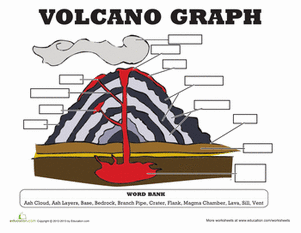


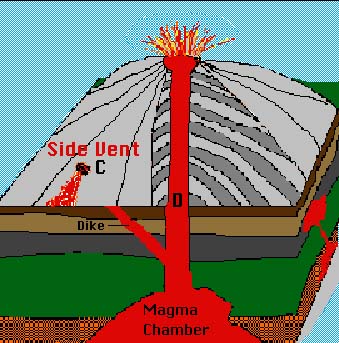
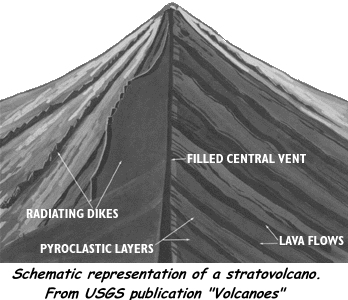


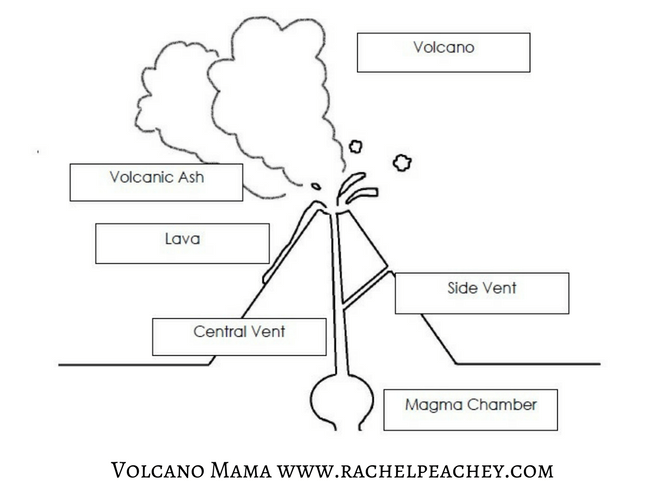



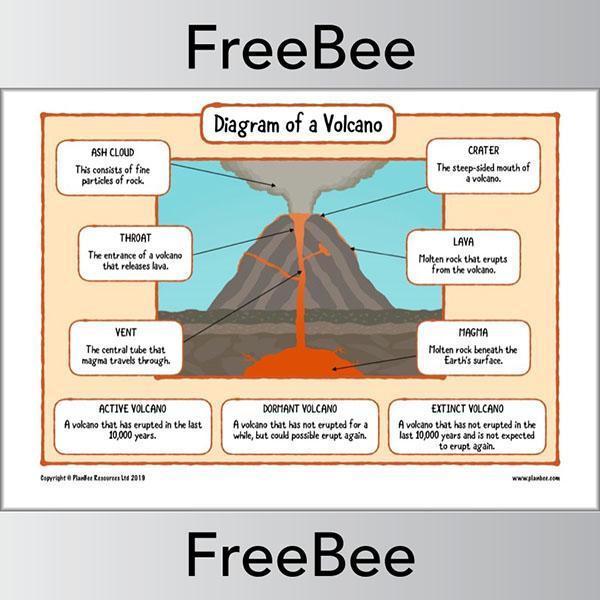
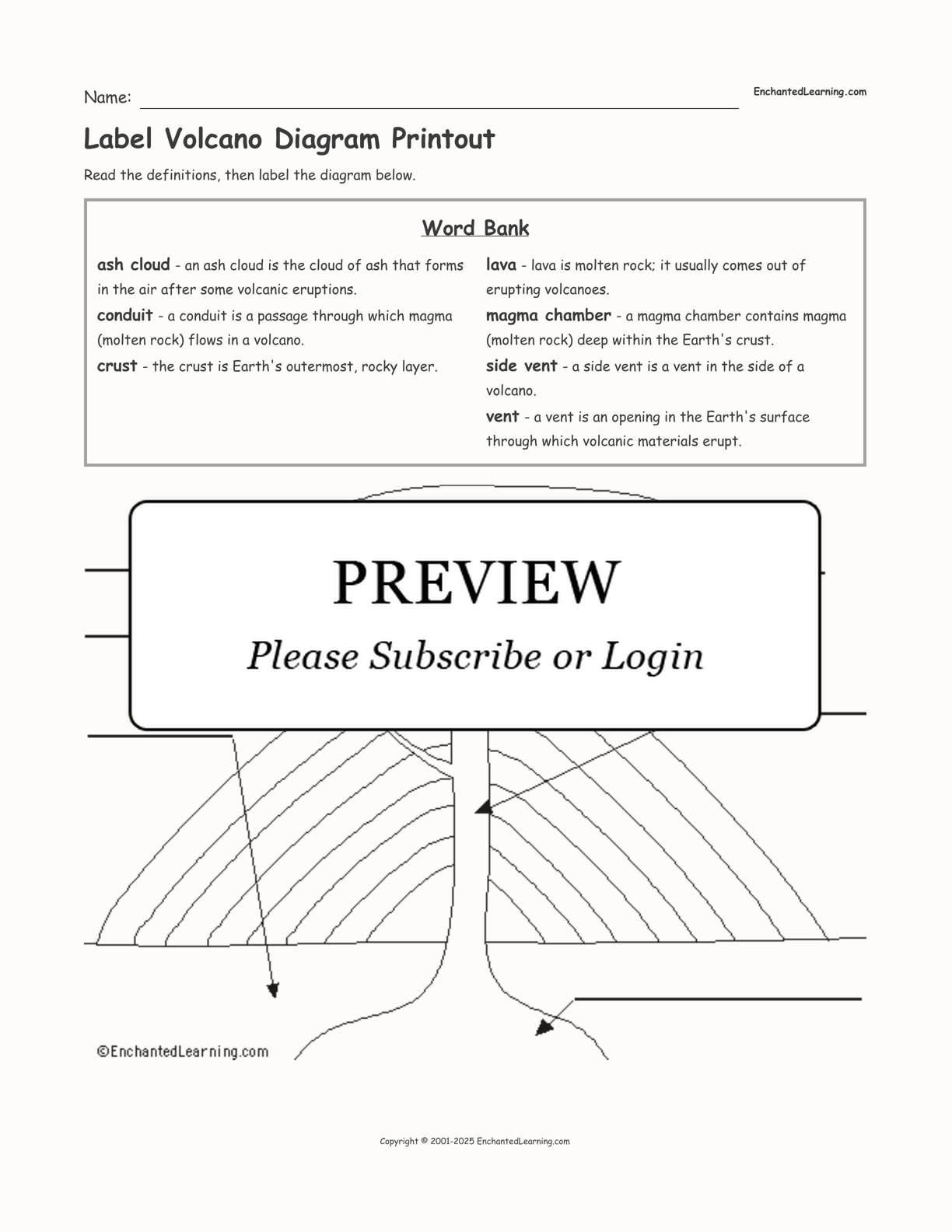



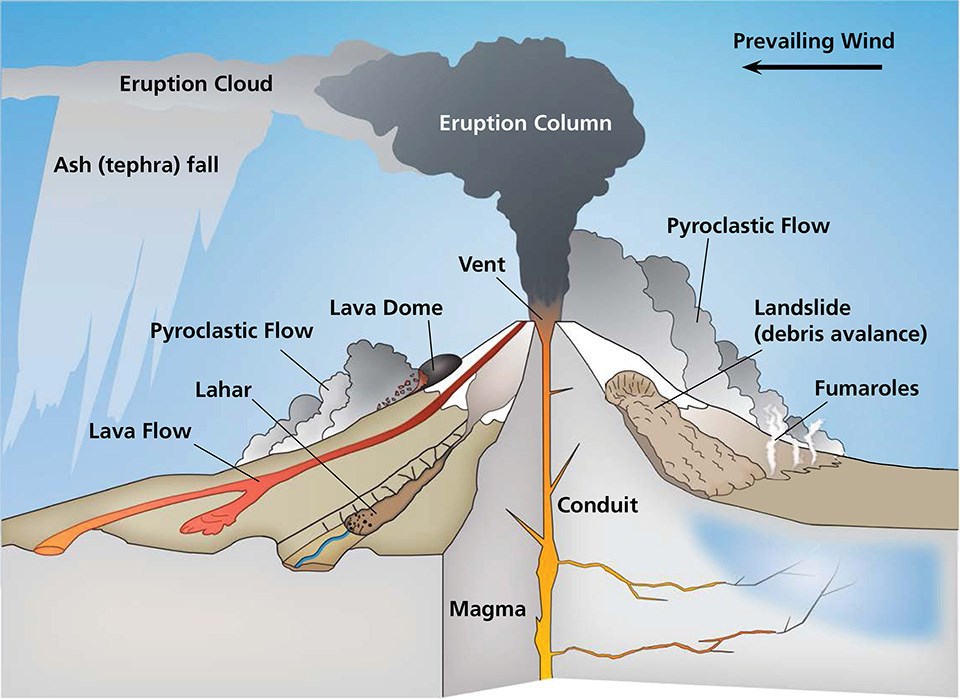


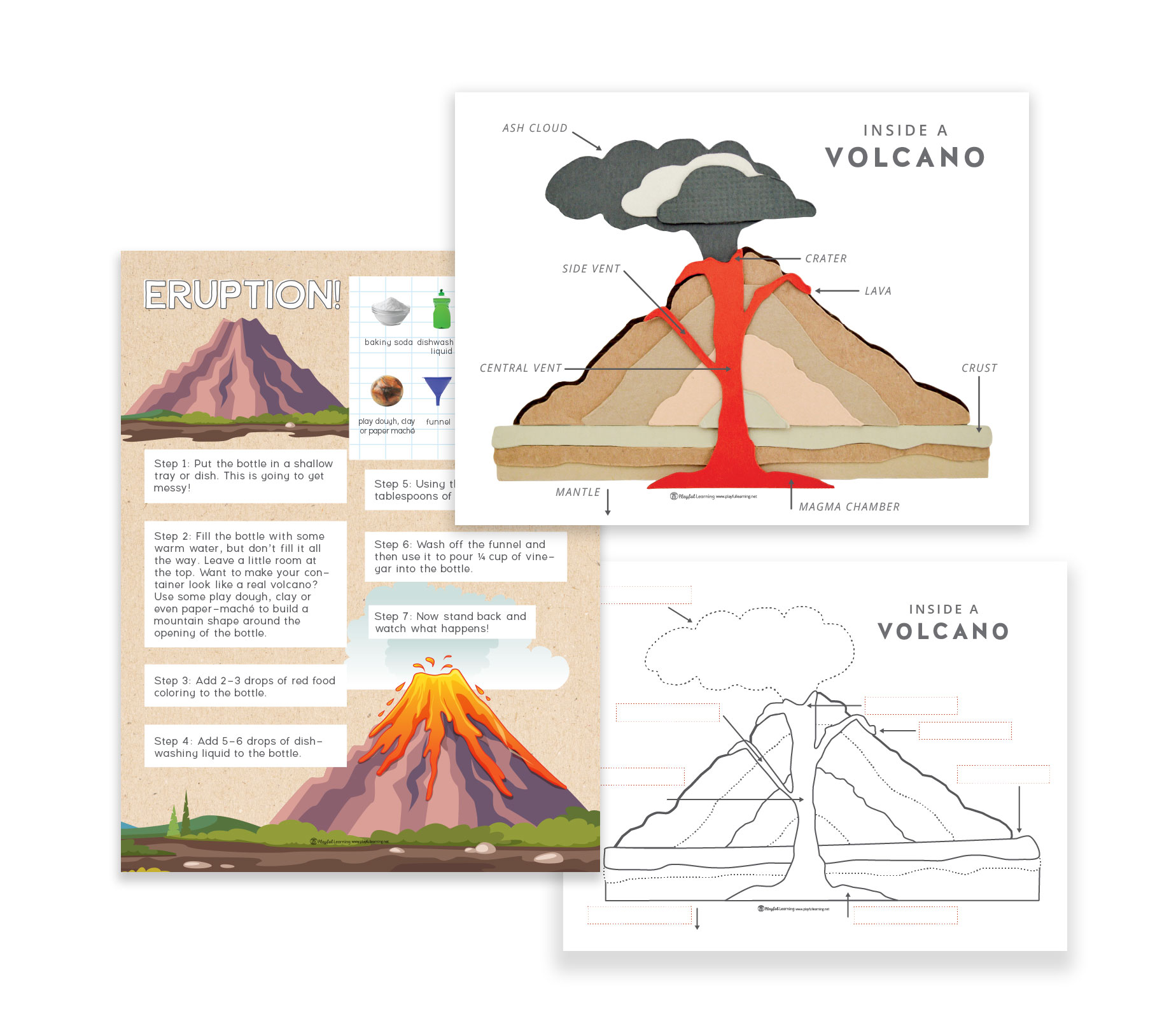
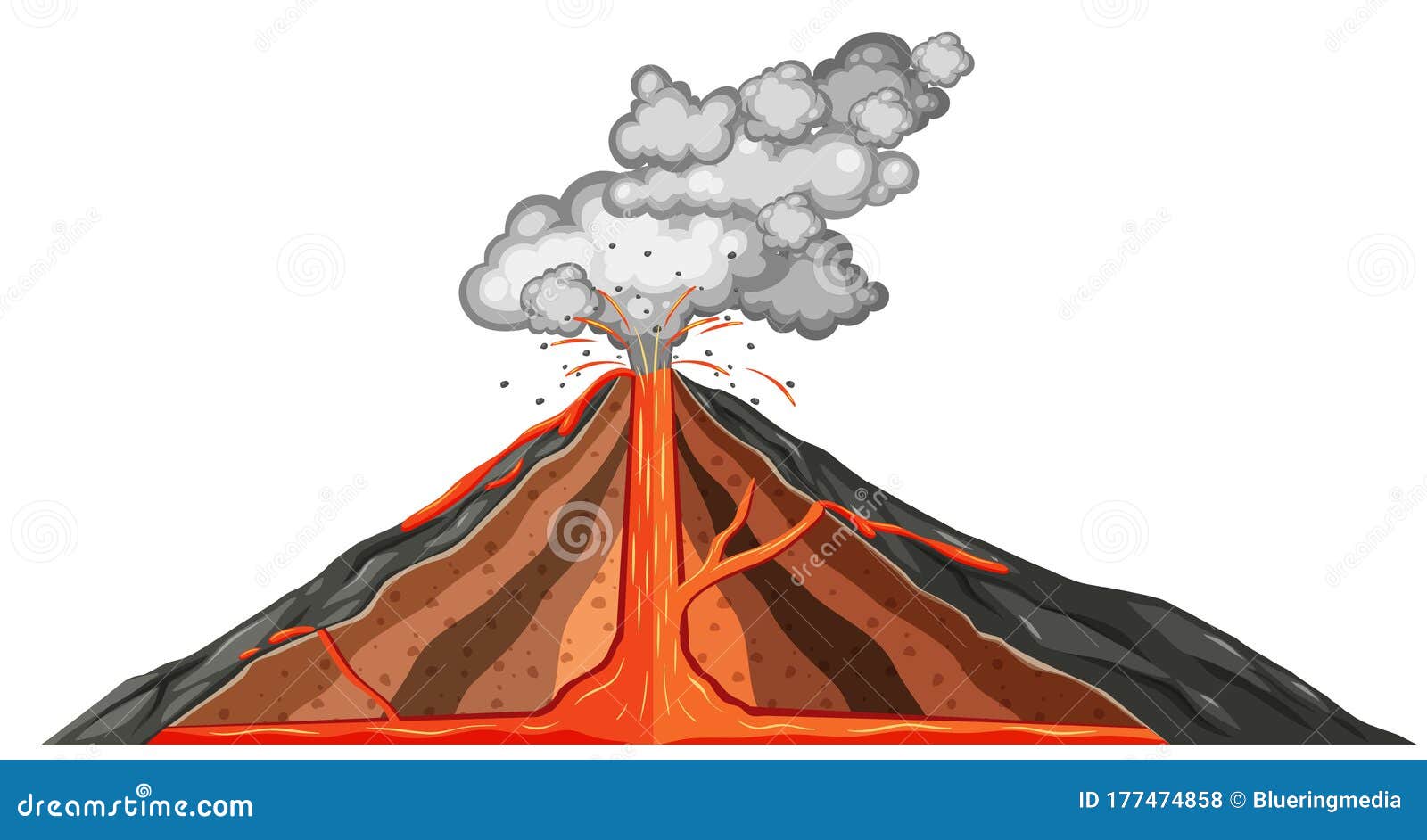








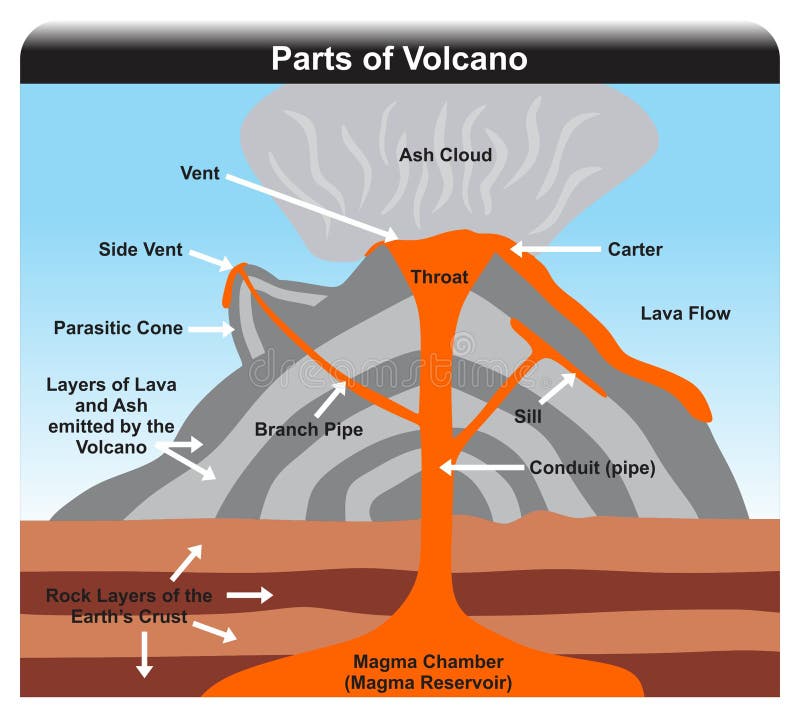
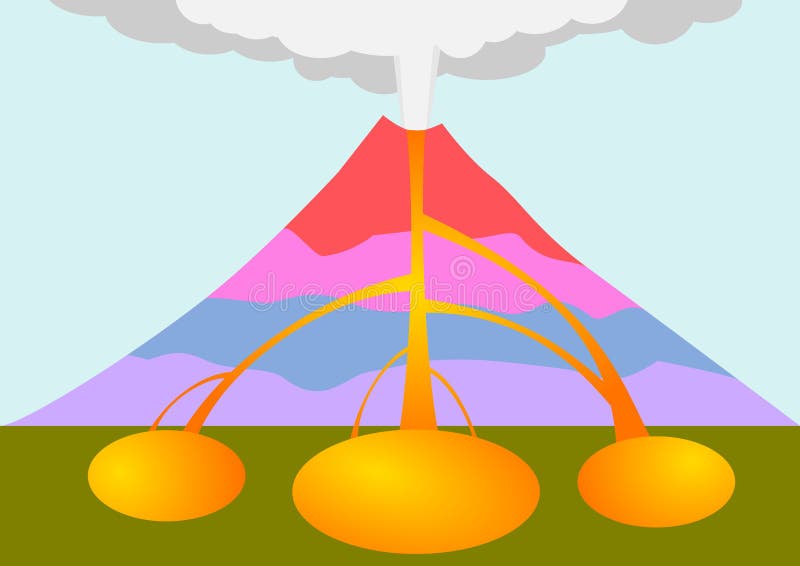
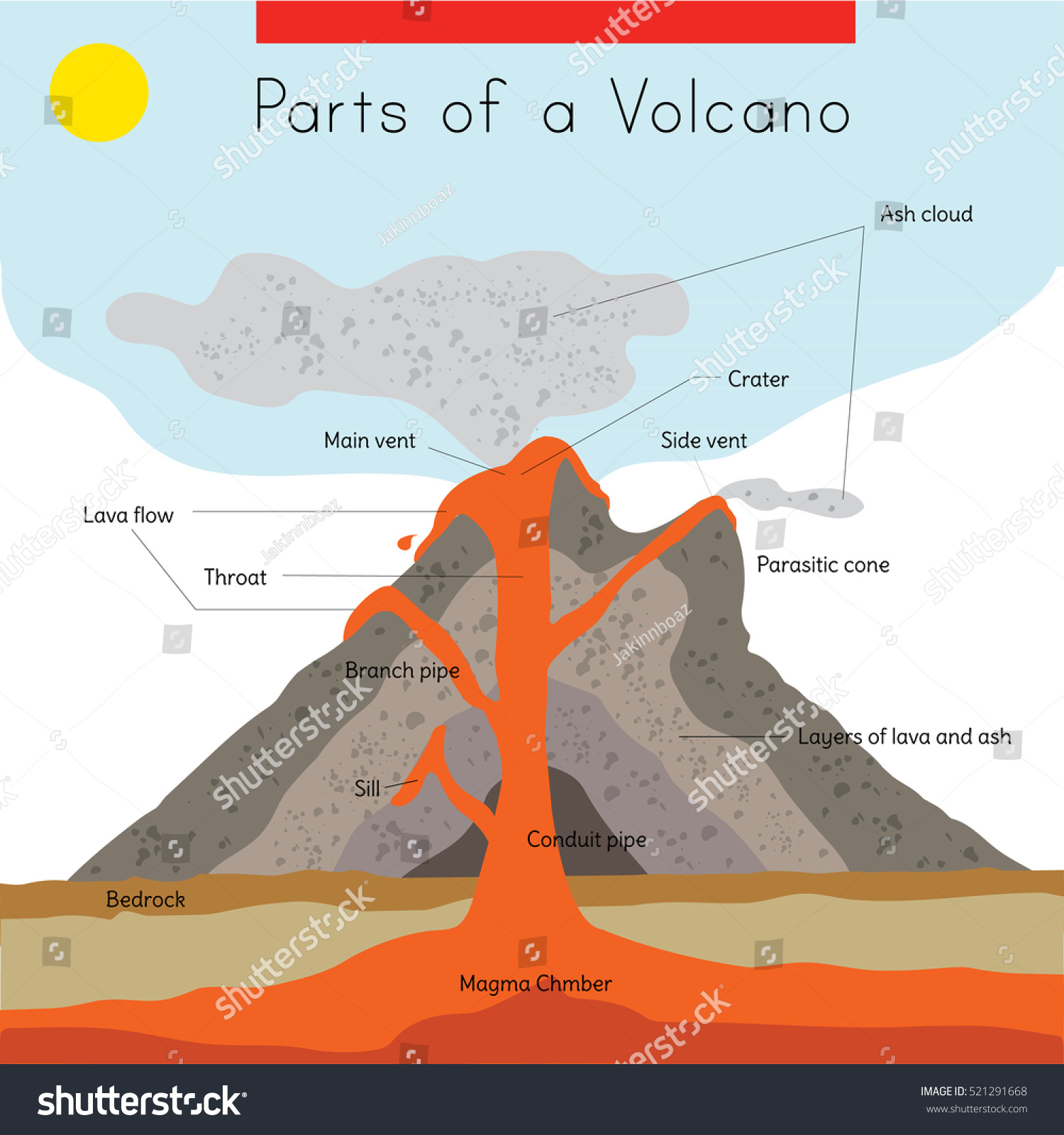



Post a Comment for "44 a diagram of a volcano with labels"